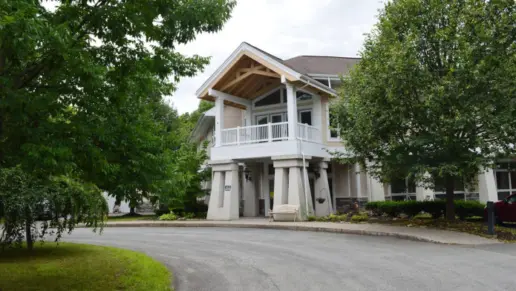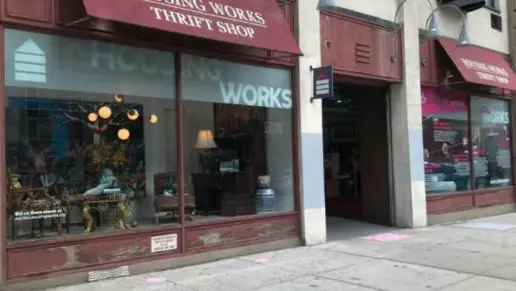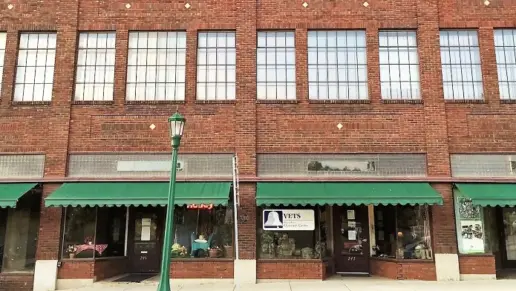About Lexington Center for Recovery – Main Street
A full-service substance use disorder and co-occurring mental health disorders treatment facility, Lexington Center for Recovery, is located on Main Street in Poughkeepsie, New York. The services they offer are customized to help individuals who are battling addiction, especially through opioid treatment programs (OTPs). These OTPs include medication-assisted treatment (MAT) using FDA-approved medications like methadone and buprenorphine to alleviate withdrawal symptoms and cravings. They also offer counseling and behavioral therapies that target the underlying causes of addiction.
Lexington also provides an intensive outpatient program (IOP) for those who require a higher level of care. This program enables patients to participate in a targeted treatment regimen while continuing with everyday life activities, such as employment or attending school. IOPs usually have group therapy, individual therapy, and educational programming on relapse prevention and coping skills.
The facility also offers treatment for other substance use disorders and co-occurring mental health conditions, in addition to more traditional opioid-focused care. Their programs help individuals gain a better understanding of how mental health and substance use can affect the sustainability of recovery as well as helping adolescents, young adults and relatives who have been affected by addiction, focusing on a community-based approach.
Many people seeking treatment need insurance information. Although the site did not specify insurance plans for the Poughkeepsie location, Lexington Center for Recovery takes all various types of insurance. As always, you should call the clinic directly for accepted insurance and more details regarding their payment options.
Accepted Insurance
Other Forms of Payment
Medicaid is a state based program that helps lower-income individuals and families pay for healthcare. Medicaid covers addiction treatment so those enrolled can use their coverage to pay for rehab. When a program accepts Medicaid the client often pays very little or nothing out of their own pocket.
Private insurance refers to any kind of healthcare coverage that isn't from the state or federal government. This includes individual and family plans offered by an employer or purchased from the Insurance Marketplace. Every plan will have different requirements and out of pocket costs so be sure to get the full details before you start treatment.
Self-pay involves paying for treatment out of your own pocket. You can use savings or credit, get a personal loan, or receive help from family and friends to fund your treatment. If you don't have insurance or your insurance plan doesn't cover a specific program, self-pay can help ensure you still get the care you need.
Sliding scale payments are based on a client's income and family size. The goal is to make treatment affordable to everyone. By taking these factors into account, addiction recovery care providers help ensure that your treatment does not become a financial burden to you or your family, eliminating one barrier to care.
Addiction Treatments
Levels of Care
Treatments
The goal of treatment for alcoholism is abstinence. Those with poor social support, poor motivation, or psychiatric disorders tend to relapse within a few years of treatment. For these people, success is measured by longer periods of abstinence, reduced use of alcohol, better health, and improved social functioning. Recovery and Maintenance are usually based on 12 step programs and AA meetings.
When you choose drug rehab in New York, you'll participate in a variety of treatments that are designed to help you live a drug-free lifestyle. Common methods of treatment include group, individual, and family counseling, medication management, nutrition, exercise, and management of co-occurring mental health disorders.
Many of those suffering from addiction also suffer from mental or emotional illnesses like schizophrenia, bipolar disorder, depression, or anxiety disorders. Rehab and other substance abuse facilities treating those with a dual diagnosis or co-occurring disorder administer psychiatric treatment to address the person's mental health issue in addition to drug and alcohol rehabilitation.
Opioid rehabs specialize in supporting those recovering from opioid addiction. They treat those suffering from addiction to illegal opioids like heroin, as well as prescription drugs like oxycodone. These centers typically combine both physical as well as mental and emotional support to help stop addiction. Physical support often includes medical detox and subsequent medical support (including medication), and mental support includes in-depth therapy to address the underlying causes of addiction.
Substance rehabs focus on helping individuals recover from substance abuse, including alcohol and drug addiction (both illegal and prescription drugs). They often include the opportunity to engage in both individual as well as group therapy.
Programs


Clinical Services
Group therapy is any therapeutic work that happens in a group (not one-on-one). There are a number of different group therapy modalities, including support groups, experiential therapy, psycho-education, and more. Group therapy involves treatment as well as processing interaction between group members.
In individual therapy, a patient meets one-on-one with a trained psychologist or counselor. Therapy is a pivotal part of effective substance abuse treatment, as it often covers root causes of addiction, including challenges faced by the patient in their social, family, and work/school life.
Trauma therapy addresses traumatic incidents from a client's past that are likely affecting their present-day experience. Trauma is often one of the primary triggers and potential causes of addiction, and can stem from child sexual abuse, domestic violence, having a parent with a mental illness, losing one or both parents at a young age, teenage or adult sexual assault, or any number of other factors. The purpose of trauma therapy is to allow a patient to process trauma and move through and past it, with the help of trained and compassionate mental health professionals.
Amenities
-
Private Setting
Staff

Executive Director

Associate Director

Finance Director

Director of HR

Director of Quality Assurance

President, BOD

VP, BOD

BOD
Contact Information
412 Main street
2nd Floor
Poughkeepsie, NY 12601







